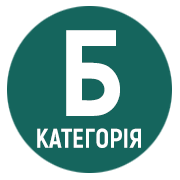Проза Павла Вольвача як урбаністичний контекст формування особистості
DOI:
https://doi.org/10.31494/2412-933Х-2018-1-6-150-157Ключові слова:
особистість, проза, автобіографія, метажанр, урбаністичний контекст, ландшафтна автобіографія.Анотація
Статтю присвячено текстуальному дослідженню романів сучасного українського письменника Павла Вольвача ―Кляса‖ і ―Хрещатик-плаза‖. Тексти автора розглядаються в контексті глобалізаційних процесів, що активувалися на межі ХХ-ХХІ століть. Аналіз урбаністичного контексту формування особистості героя зумовлений тим, що українську літературу ще й досі сприймають як сільську. Романи автора вписані в контекст урбаністичних романів початку ХХІ століття (―Ровно/Рівне‖ (2001) Олександра Ірванця, ―Ворошиловград‖ (2010) Сергія Жадана, ―Ностальгія‖ (2016) Євгенії Кононенко, ―Кляса‖ (2003), ―Хрещатик-плаза‖ (2013) Павла Вольвача), які продовжують традицію роману ―Місто‖ (1928) В.Підмогильного. Метою статті є аналіз впливу міста на формування особистості. У статті використовуються біографічний, порівняльний, психологічний методи дослідження творчості. Перший роман П.Вольвача ―Кляса‖ (2004) представляє етап становлення героя, накопичення життєвого досвіду, розуміння себе у світі. Автор зображує один день з життя ―люмпена-естета‖ Пашка в ―інтер’єрах індустріального Запоріжжя‖. Урбаністичний контекст формування особистості – це заводські райони Запоріжжя, задимленість і смог, пивні ларьки, типові будівлі й інтер’єри радянських часів. Якщо герой роману ―Кляса‖ перебуває на етапі становлення, вибору, йому притаманні традиційні для юнацьких років вагання, роздуми й поневіряння, то герой роману ―Хрещатик-плаза‖ на перший погляд із життєвими пріоритетами визначився, але так само багато аналізує й розмірковує. Другий роман ―Хрещатик-плаза‖ (2013) продовжує дослідження впливу середовища на особистість і теж має автобіографічні елементи. Герой опиняється в столиці й намагається ідентифікувати себе одночасно в офісному середовищі (робота на радіостанції) й в середовищі творчо-письменницькому. Утім не лише люди впливають на героя, а й місто. Проаналізувавши романи Павла Вольвача ―Кляса‖ і ―Хрещатик-плаза‖, ми дійшли висновку про те, що вони виразно урбаністично марковані. Герой першого роману знаходиться на етапі становлення особистості, перебуває під впливом суспільства індустріального Запоріжжя, водночас є частиною його і окремим індивідом. Герой другого знаходиться на етапі змін – переїзд до Києва, відрядження до Праги, перемога творчого начала над професійним; він прагне вписатися в столичний ландшафт, займає позицію спостерігача, дослідника міста, трансформує враження від життя у ньому і подорожей у творчість. Прозові тексти П.Вольвача також виразно автобіографічно марковані, утім до традиційно автобіографічних їх віднести неможливо, вони поєднують в собі елементи урбаністичного, автобіографічного романів, мемуарів, що дозволяє нам кваліфікувати їх як ландшафтну автобіографію, що належить до філософського метажанру.
Посилання
Антипович Т. У череві вулкана / Тарас Антипович // Дзеркало тижня. – 2011. – 26 березня – Режим доступу: http://avtura.com.ua/review/535/
Вольвач П. Кляса : роман /Павло Вольвач. – Тернопіль: Джура, 2004. – 284 с.
Вольвач П. Хрещатик-плаза : роман /Павло Вольвач. – К.: Український пріоритет, 2013. – 288 с.
Література non fiction: теоретичний вимір: монографія / упорядник Т.Ю.Черкашина; наук.ред.О.А.Галич. – К. : Видавничий дім Дмитра Бураго, 2018. – 272 с.
Петраш О. Роман “Кляса” ‒ фрондерство Вольвача/ Олена Петраш [Електронна версія] – Режим доступу: http://sumno.com/literature-review/roman-klyasa-fronderstvo-volvacha/
Санченко А. Д’артаньян вздовж Хрещатика / Антон Санченко [Електронна версія] – Режим доступу: http://litakcent.com/2014/04/02/dartanjan-vzdovzh-hreschatyka/






